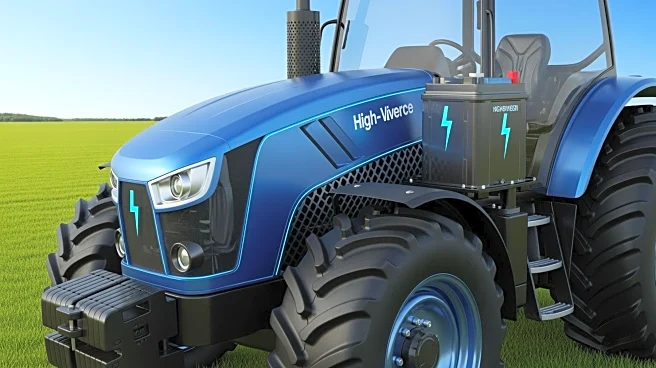What's Happening?
ZAPI GROUP, a leader in electrification technology, is set to present its latest advancements in high-voltage solutions at AGRITECHNICA 2025 in Hannover, Germany. The company aims to enhance the efficiency,
sustainability, and productivity of agricultural Original Equipment Manufacturers (OEMs) through its integrated electrification platform. Key innovations include a permanent magnet motor with integrated inverter, a high-power on-board charger, a bidirectional V2X charger, and a rugged DC/DC converter with cybersecurity features. These components are designed to meet the demands of next-generation electric agricultural machinery, supporting the industry's shift towards integrated, high-voltage architectures.
Why It's Important?
The advancements by ZAPI GROUP are significant as they address the growing need for sustainable and efficient agricultural machinery. By integrating high-voltage solutions, OEMs can improve productivity and reduce environmental impact, aligning with global sustainability goals. The introduction of digital technologies like V2X capability and cybersecurity into agricultural systems represents a strategic move towards smarter, networked farming solutions. This development could lead to increased adoption of electric machinery in agriculture, potentially transforming the industry and reducing reliance on fossil fuels.
What's Next?
ZAPI GROUP plans to conduct educational sessions at AGRITECHNICA 2025, focusing on real-time monitoring, system integration, and the challenges of designing electric mobile machinery for agriculture. These sessions aim to provide practical strategies and case studies to further support the transition to electrified agricultural systems. The company's continued innovation and collaboration with OEMs are expected to drive further advancements in sustainable farming technologies.
Beyond the Headlines
The shift towards electrified agricultural machinery not only supports environmental sustainability but also enhances food security by improving the efficiency of crop production. The integration of cybersecurity measures ensures the reliability and safety of these advanced systems, addressing potential vulnerabilities in digital agriculture. As the industry evolves, the role of technology in agriculture will likely expand, leading to new business models and opportunities for growth.









